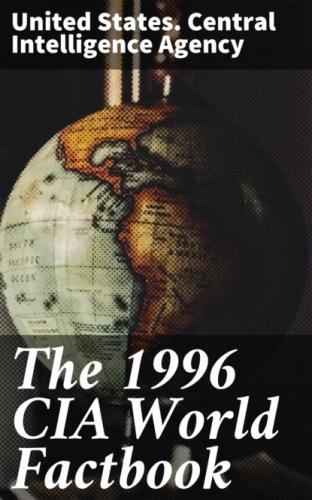Map—
Location: 40 30 N, 47 30 E—Southwestern Asia, bordering the
Caspian Sea, between Iran and Russia
Flag——
Description: three equal horizontal bands of blue (top), red, and green; a crescent and eight-pointed star in white are centered in red band
Geography————
Location: Southwestern Asia, bordering the Caspian Sea, between
Iran and Russia
Geographic coordinates: 40 30 N, 47 30 E
Map references: Commonwealth of Independent States
Area:
total area: 86,600 sq km
land area: 86,100 sq km
comparative area: slightly larger than Maine
note: includes the exclave of Naxcivan Autonomous Republic and the
Nagorno-Karabakh region; the region's autonomy was abolished by
Azerbaijani Supreme Soviet on 26 November 1991
Land boundaries:
total: 2,013 km
border countries: Armenia (with Azerbaijan-proper) 566 km, Armenia
(with Azerbaijan-Naxcivan exclave) 221 km, Georgia 322 km, Iran
(with Azerbaijan-proper) 432 km, Iran (with Azerbaijan-Naxcivan
exclave) 179 km, Russia 284 km, Turkey 9 km
Coastline: 0 km (landlocked)
note: Azerbaijan borders the Caspian Sea (800 km, est.)
Maritime claims: none (landlocked)
International disputes: violent and longstanding dispute with ethnic Armenians of Nagorno-Karabakh over its status; Caspian Sea boundaries are not yet determined
Climate: dry, semiarid steppe
Terrain: large, flat Kur-Araz Lowland (much of it below sea level)
with Great Caucasus Mountains to the north, Qarabag (Karabakh)
Upland in west; Baku lies on Abseron (Apsheron) Peninsula that juts
into Caspian Sea
lowest point: Caspian Sea −28 m
highest point: Bazarduzu Dagi 4,485 m
Natural resources: petroleum, natural gas, iron ore, nonferrous
metals, alumina
Land use:
arable land: 18%
permanent crops: 4%
meadows and pastures: 25%
forest and woodland: 0%
other: 53%
Irrigated land: 14,010 sq km (1990)
Environment:
current issues: local scientists consider the Abseron (Apsheron)
Peninsula (including Baku and Sumqayit) and the Caspian Sea to be
the ecologically most devastated area in the world because of severe
air, water, and soil pollution; soil pollution results from the use
of DDT as a pesticide and also from toxic defoliants used in the
production of cotton
natural hazards: droughts; some lowland areas threatened by rising
levels of the Caspian Sea
international agreements: party to - Climate Change; signed, but not
ratified - Biodiversity
Geographic note: landlocked
People———
Population: 7,676,953 (July 1996 est.)
Age structure:
0–14 years: 32% (male 1,270,812; female 1,215,781)
15–64 years: 61% (male 2,293,688; female 2,423,222)
65 years and over: 7% (male 179,048; female 294,402) (July 1996 est.)
Population growth rate: 0.78% (1996 est.)
Birth rate: 22.28 births/1,000 population (1996 est.)
Death rate: 8.69 deaths/1,000 population (1996 est.)
Net migration rate: −5.8 migrant(s)/1,000 population (1996 est.)
Sex ratio:
at birth: 1.05 male(s)/female
under 15 years: 1.04 male(s)/female
15–64 years: 0.95 male(s)/female
65 years and over: 0.61 male(s)/female
all ages: 0.95 male(s)/female (1996 est.)
Infant mortality rate: 74.5 deaths/1,000 live births (1996 est.)
Life expectancy at birth: total population: 64.84 years male: 60.13 years female: 69.78 years (1996 est.)
Total fertility rate: 2.64 children born/woman (1996 est.)
Nationality: noun: Azerbaijani(s) adjective: Azerbaijani
Ethnic divisions: Azeri 90%, Dagestani Peoples 3.2%, Russian 2.5%,
Armenian 2.3%, other 2% (1995 est.)
note: almost all Armenians live in the separatist Nagorno-Karabakh
region
Religions: Muslim 93.4%, Russian Orthodox 2.5%, Armenian Orthodox
2.3%, other 1.8% (1995 est.)
note: religious affiliation is still nominal in Azerbaijan; actual
practicing adherents are much lower
Languages: Azeri 89%, Russian 3%, Armenian 2%, other 6% (1995 est.)
Literacy: age 15 and over can read and write (1989 est.)
total population: 97%
male: 99%
female: 96%
Government—————
Name of country:
conventional long form: Azerbaijani Republic
conventional short form: Azerbaijan
local long form: Azarbaycan Respublikasi
local short form: none
former: Azerbaijan Soviet Socialist Republic
Data code: AJ
Type of government: republic
Capital: Baku (Baki)
Administrative divisions: 59 rayons (rayonlar; rayon - singular),
11 cities* (saharlar; sahar - singular), 1 autonomous republic**
(muxtar respublika); Abscron Rayonu, Agcabadi Rayonu, Agdam Rayonu,
Agdas Rayonu, Agstafa Rayonu, Agsu Rayonu, AliBayramli Sahari*,
Astara Rayonu, Baki Sahari*, Balakan Rayonu, Barda Rayonu, Beylaqan
Rayonu, Bilasuvar Rayonu, Cabrayil Rayonu, Calilabad Rayonu,
Daskasan Rayonu, Davaci Rayonu, Fuzuli Rayonu, Gadabay Rayonu, Ganca
Sahari*, Goranboy Rayonu, Goycay Rayonu, Haciqabul Rayonu, Imisli
Rayonu, Ismayilli Rayonu, Kalbacar Rayonu, Kurdamir Rayonu, Lacin
Rayonu, Lankaran Rayonu, Lankaran Sahari*, Lerik Rayonu, Masalli
